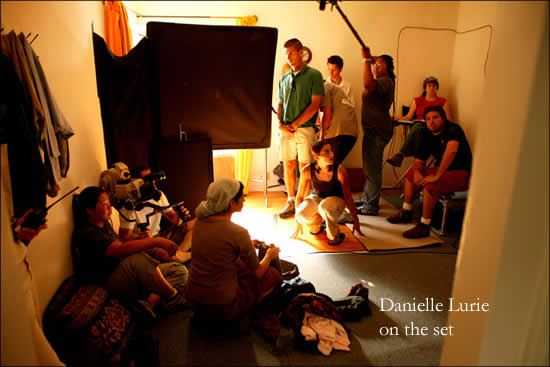 Named as one of Filmmaker Magazine’s ’25 New Faces of Independent Film’ and a fellow of IFP’s Emerging Visions symposium, Danielle Lurie is a New York City based writer and director. She graduated Stanford University in 2000 with a BA in Philosophy.
Named as one of Filmmaker Magazine’s ’25 New Faces of Independent Film’ and a fellow of IFP’s Emerging Visions symposium, Danielle Lurie is a New York City based writer and director. She graduated Stanford University in 2000 with a BA in Philosophy.
Danielle’s short film, In the Morning, premiered at the 2005 Sundance Film Festival, and has won nine film festivals. Danielle has co-directed a documentary in Uganda and a feature length documentary following Sheryl Crow’s Global Warming tour. Danielle has written screenplay adaptations of Jamaica Kincaid’s novel, Lucy, to star Zoe Saldana, as well as an excerpt of Nicholas Kristof’s book, Half the Sky, directed by Marisa Tomei and Lisa Leone. Danielle will direct the feature version of In the Morning, called Fortunate Sons, that will co-star Oscar Nominee Emily Watson. She has most recently directed a new short, Tiny Miny Magic, starring Jennifer Lafleur and Ross Partridge, which Premiered at the Cleveland Film Festival in 2012. Danielle has adapted another Kristof NY Times article into a full-length screenplay that she will direct titled Usha, set in the slums of India.
Bijan Tehrani: How did you start as a filmmaker?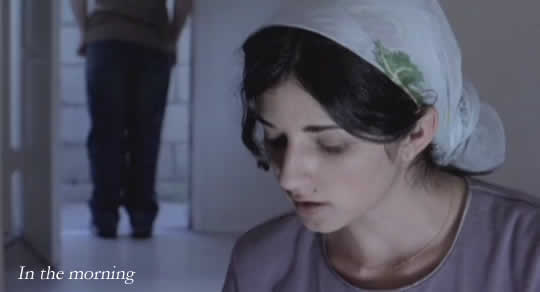
Danielle Luri: Well, I would say that since I was a little kid, I have always seen life as a movie. I saw visual shots and car chases, and I am just lucky that there is a career that fits that sort of neurosis that I have. I didn’t go to film school, so after college I went down to Los Angeles and started getting coffee for a lot of really talented people and I learned from them. I was an intern for Steven Soderberg and George Clooney, I was an assistant to a talented British producer named Chris Coen for about a year, and then I was a production assistant on movies like Terminator 3 and The House of Sand and Fog, as well as a lot of television shows and commercials. I got coffee for the directors, asked them why they were doing the shots they were doing and that was my film school, and the start of my career.
BT: The direction that you took in your films is different than what Hollywood usually does. How did you approach your works?
DL: The films that interest me the most are films that are about social issues. As for the commerciality of the films I make, I rarely consider the business side of a film when I set out to write a screenplay (but if you’re a producer reading this, pretend like I never said that). I guess that when you are first starting out, you don’t need to make films that are commercially viable, and instead you need to make a film that shows that you are capable of using a camera and telling a story.
BT: Do you think you will do a commercial project in the future?
DL: If I had a commercial idea, I would absolutely do it. I don’t think I would make a commercial film just to make one, but I could see myself loving certain topics down the road.
BT: How successful were the first films that you made?
DL: The first short film was called “In The Morning” did well in the sense that it premiered at Sundance and got me signed by an agent and a manager, and this opened a lot of doors for me in Hollywood.
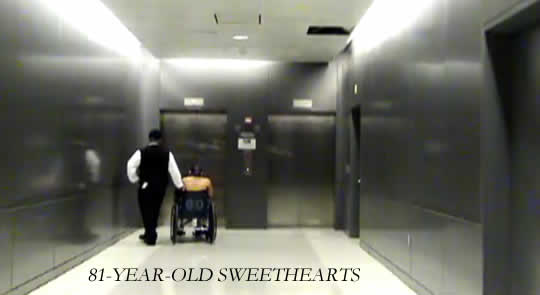 BT: Have you ever thought about going back to the same subject matter and making another film about honor killings? DL: I actually made that short film with the intention of making a full length version. I thought, “Oh, this is such an interesting and complicated topic” and my initial idea after I read the article was to make a feature film. I am currently fundraising for that film now, which is called ‘Fortunate Sons’ —it takes place in London and has Emily Watson attached to co-star. BT: You are working on another project as well, is that right?
BT: Have you ever thought about going back to the same subject matter and making another film about honor killings? DL: I actually made that short film with the intention of making a full length version. I thought, “Oh, this is such an interesting and complicated topic” and my initial idea after I read the article was to make a feature film. I am currently fundraising for that film now, which is called ‘Fortunate Sons’ —it takes place in London and has Emily Watson attached to co-star. BT: You are working on another project as well, is that right?
DL: I am also working on a film that is based on another New York Times article by Nick Kristof. It is about an Indian woman who gets a group of sari-clad women together to defeat their slum’s gang boss, so it is this Erin Brokovich-meets-City of God type of story that will be really awesome to tell.
BT: Most of your films confront issues that directly impact women. Are you going to continue to follow those conflicts and issues?
DL: I never really intended to make films about women’s issues, but when I look at my films I do realize that they have a lot to do with women’s issues and tell stories of injustice. I guess it’s a fact that a lot of injustice in this world happens to women, so I think that is why a lot of my films tend to be about women’s rights issues. All of the films have very strong woman protagonists, and they go through complex self discovery. BT: You are a minority as a female director, how do you feel about that? DL: I’ve never thought of myself as a female director, I am just a director, so I am not 100% sure how to answer that. I know that 3% of all directors are women, which seems pretty ludicrous to me. In general, women have a great sense of empathy and compassion, which makes them the right kind of person to direct a film. I think men can have that just as well, so I am not sure if that is necessarily a difference.
BT: From what you have learned and experienced in Hollywood, was there any kind of feeling that it is a “man’s world”?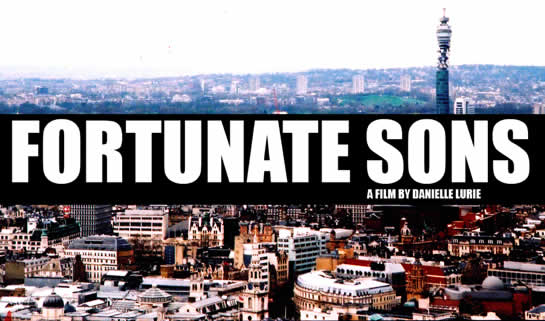
DL: I know it would be more interesting to have the answer be yes, but I think that you are interviewing me at a time when things are really changing. I think a few decades ago, it would have been more of a man’s world because the whole world was a man’s world then. In today’s world, men a very used to having women join the crew, so I personally do not notice a major difference, and I would be curious to see what other women would say.
BT: Where do you want to see yourself five years from now as a filmmaker?
DL: I suppose I would like to have more of a voice than I do now. am a very visual person, so I actually think that my films are my best way of expressing myself and my thoughts. I suppose the more well received my films are, the more dialog I am able to have with the global film community. Also, I’d like to have a really comfortable couch by then, since I have never had one yet.
BT: What is your immediate next project?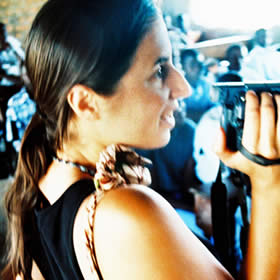 DL: I have a few films in the works that are all in the fundraising stages, so it will really be whichever film that gets funded first. It would make sense that the first film that I would make would be the full length version of my short film, called Fortunate Son—hopefully we will be filming soon.
DL: I have a few films in the works that are all in the fundraising stages, so it will really be whichever film that gets funded first. It would make sense that the first film that I would make would be the full length version of my short film, called Fortunate Son—hopefully we will be filming soon.
BT: Have you seen films from other women filmmakers that you admire?
DL: Yes, absolutely. I’d say the most exciting filmmaker to me right now is a female filmmaker and her name is Susanne Bier. She is a Danish filmmaker that recently won the Oscar for Best Foreign Film, and her films are absolutely thrilling to watch. They are always about people and relationships in the most impossible of situations; she puts people in the same room that you would never imagine would be in the same room, and she handles the interactions with such incredible care, empathy and brilliance that you are hooked on every scene in her films. I am definitely trying to steal from her as much as humanly possible. Of course, you can’t forget the work of Katherine Bigelow. When I saw The Hurt Locker, I was shocked that the film was directed by a woman. Shocked and super proud.
BT: Thank you so much for your time!

